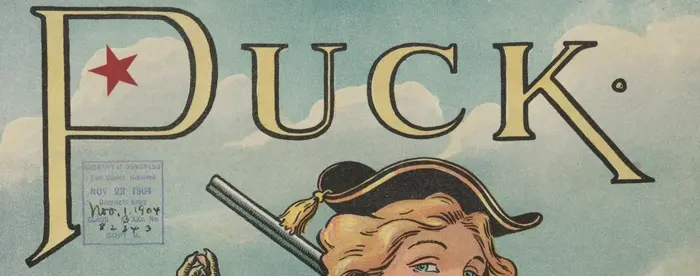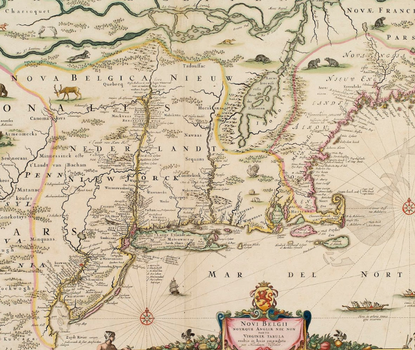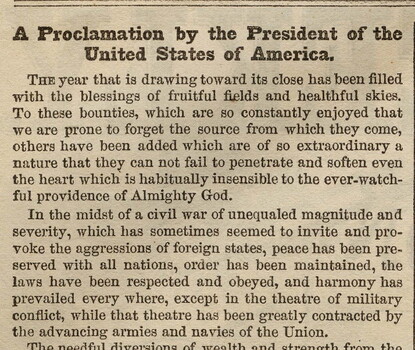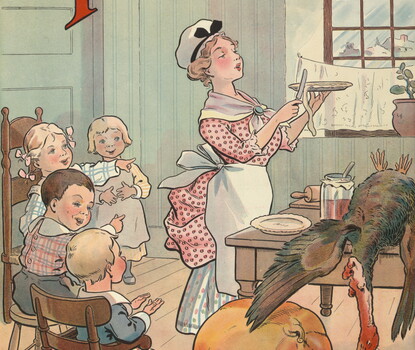The Plymouth colonists and the Wampanoag shared an autumn feast in 1621 that served as the basis for what we now celebrate as Thanksgiving. Though the event continued to be celebrated, first across the colonies and then the United States, it was not until 1863 that President Abraham Lincoln proclaimed Thanksgiving Day a national holiday.
Explore the history of Thanksgiving, from its origins through its evolution into a recognized federal holiday on the fourth Thursday of November.
Image: Louis M. Glackens, “Thanksgiving 1904,” Puck, November 23, 1904 (Library of Congress)



